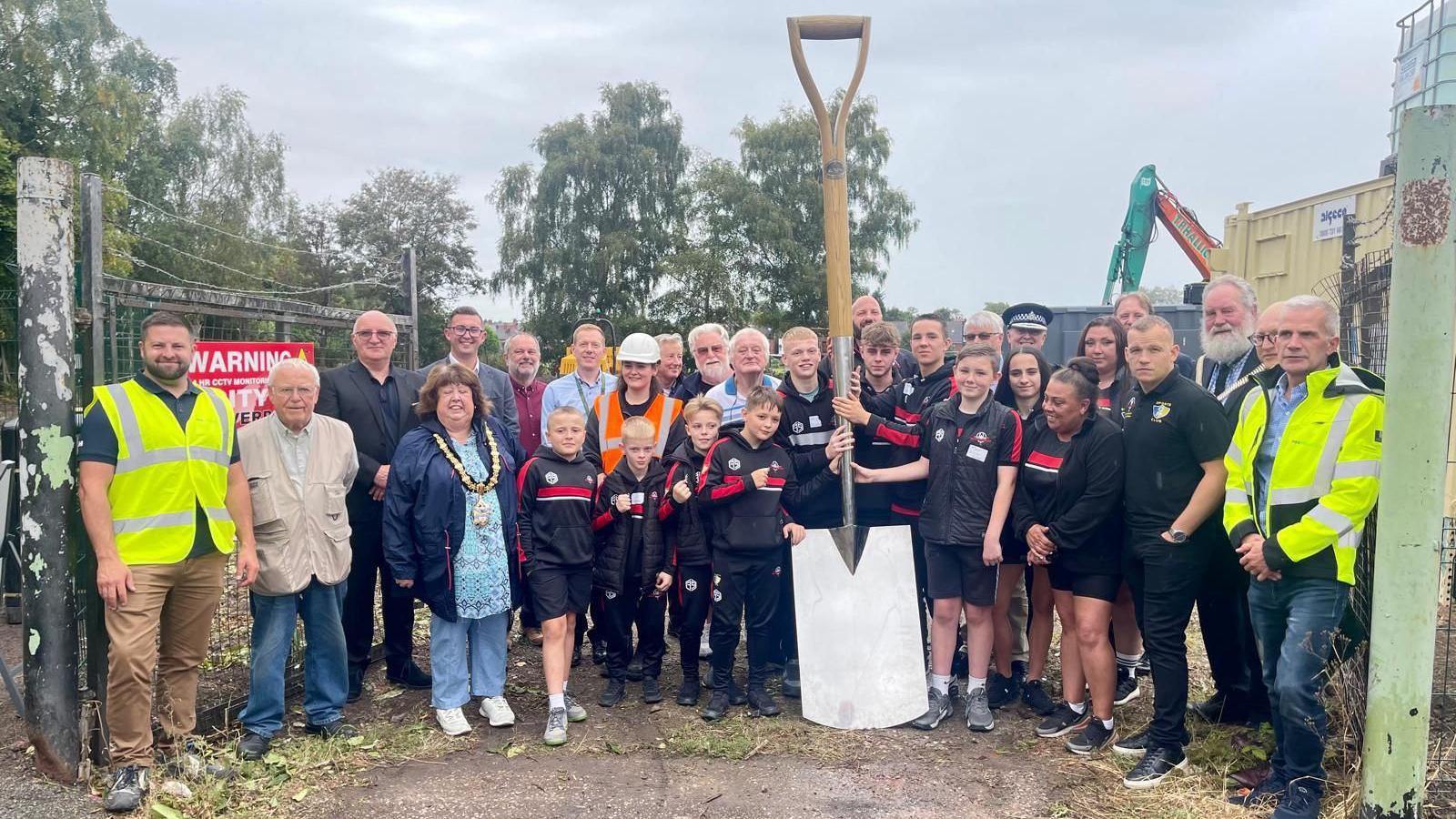Boxing club classes for people with disabilities
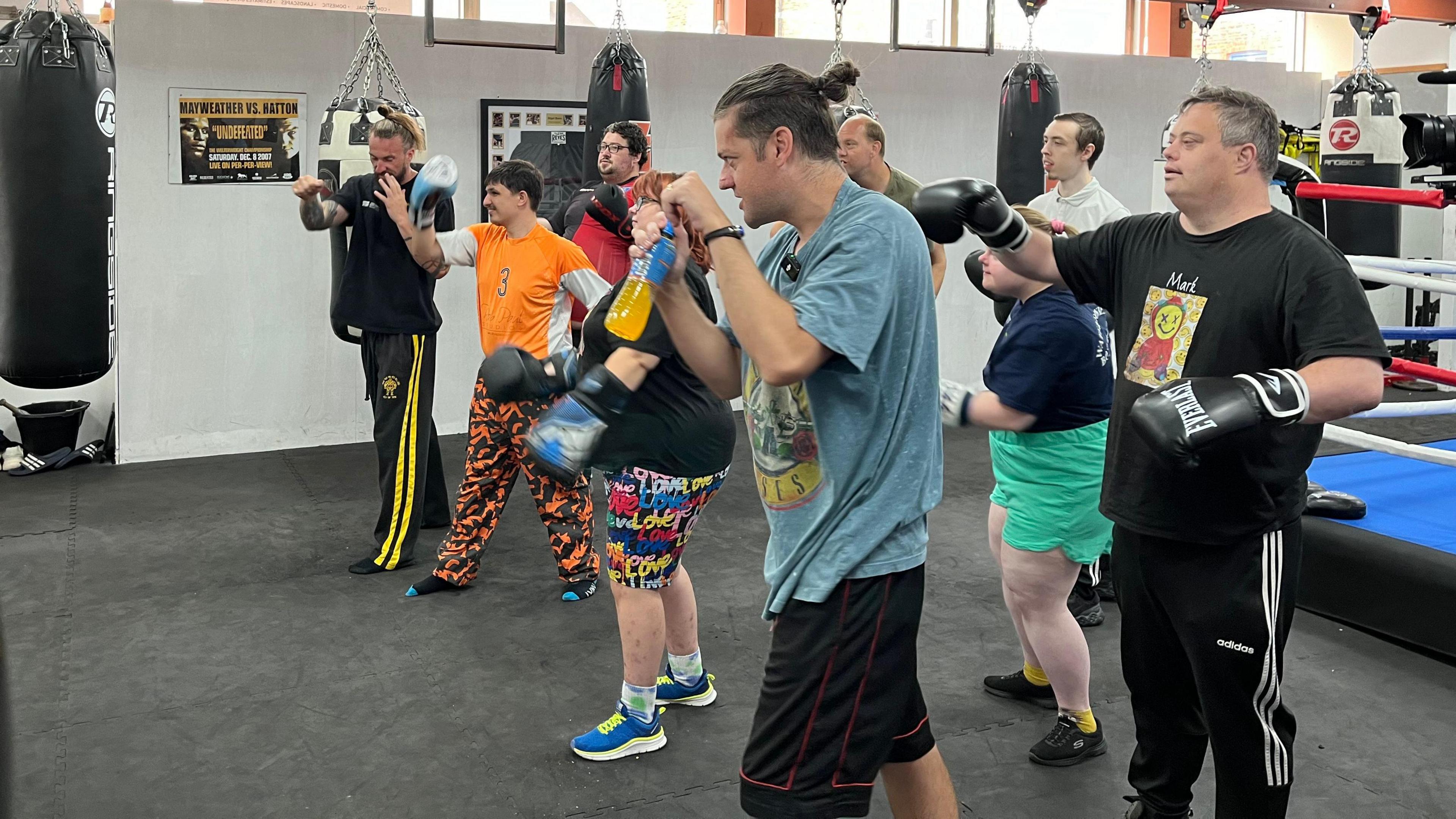
The boxing that the Waterlooville club teaches is non-contact
- Published
A boxing club has been encouraging people with disabilities to take up the sport.
The dedicated one-hour sessions have been introduced at Waterlooville Boxing Club from midday on Saturdays.
Chris Peskett, who himself has learning difficulties following a brain tumour, runs the classes.
He said he learnt boxing a few years ago and found that clubs struggled to train people with disabilities.
Mr Peskett said: “I think what other places do is they look at the person and do it by appearance but they don’t actually look at the inside, their real personality, and their actual skills, because they [people with disabilities] have a lot of potential in life.”
Due to the health conditions of some of the participants, the boxing which is taught is non-contact.
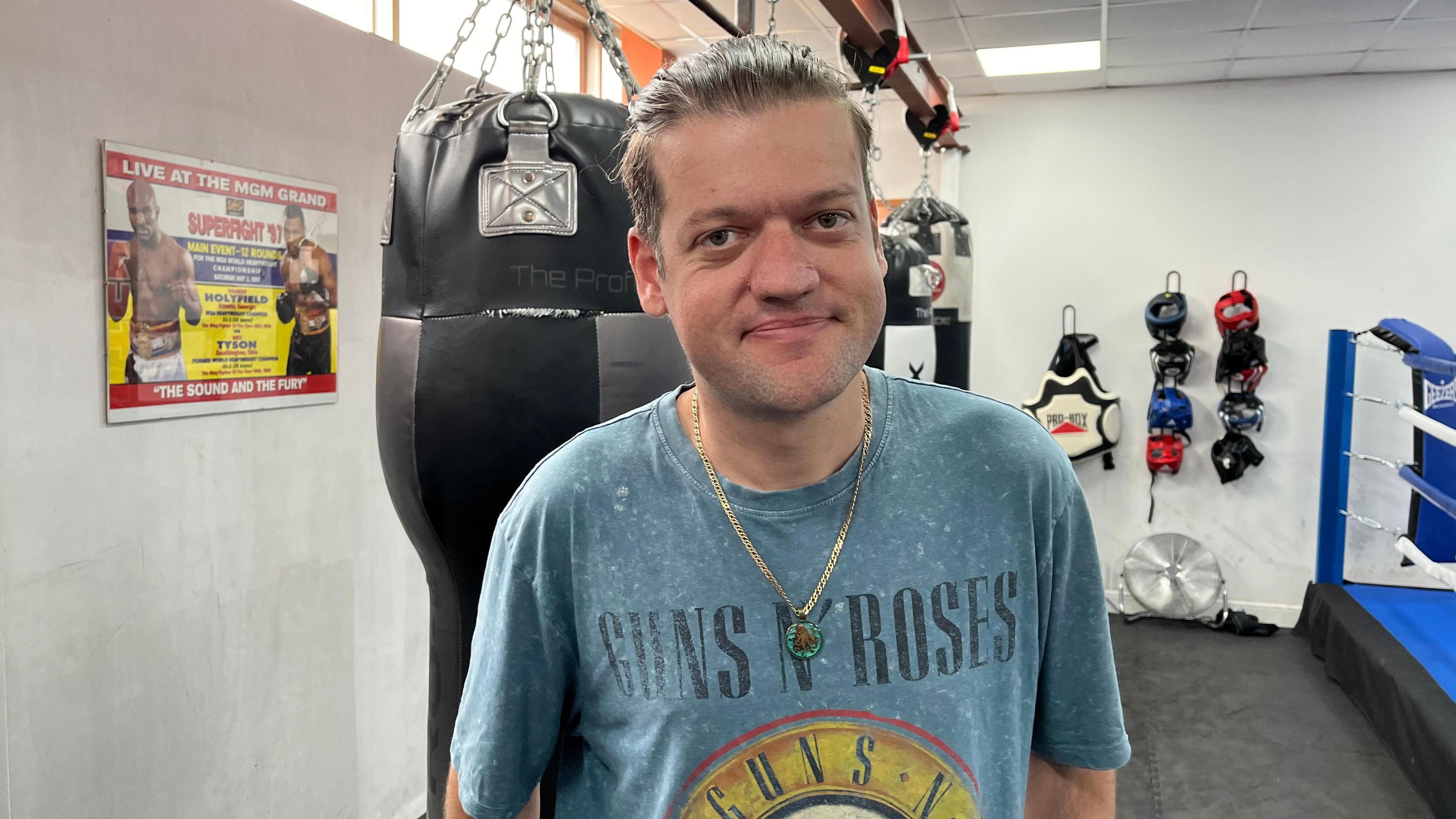
Chris Peskett, who himself has learning difficulties, started the sessions
The owner of Waterlooville Boxing club, George Mackenzie, thinks that many boxing clubs worry about having disabled people train at their premises.
He said that they might think it is "a risk" but he dismissed these worries.
Recently the group supported wheelchair user Mia Bardoe via a hoist so she could train in the boxing ring.
Mia said boxing has improved her mobility.
“Boxing has made me stronger with my walking, with my arms, it’s also made me stronger in the gym as well,” she said.
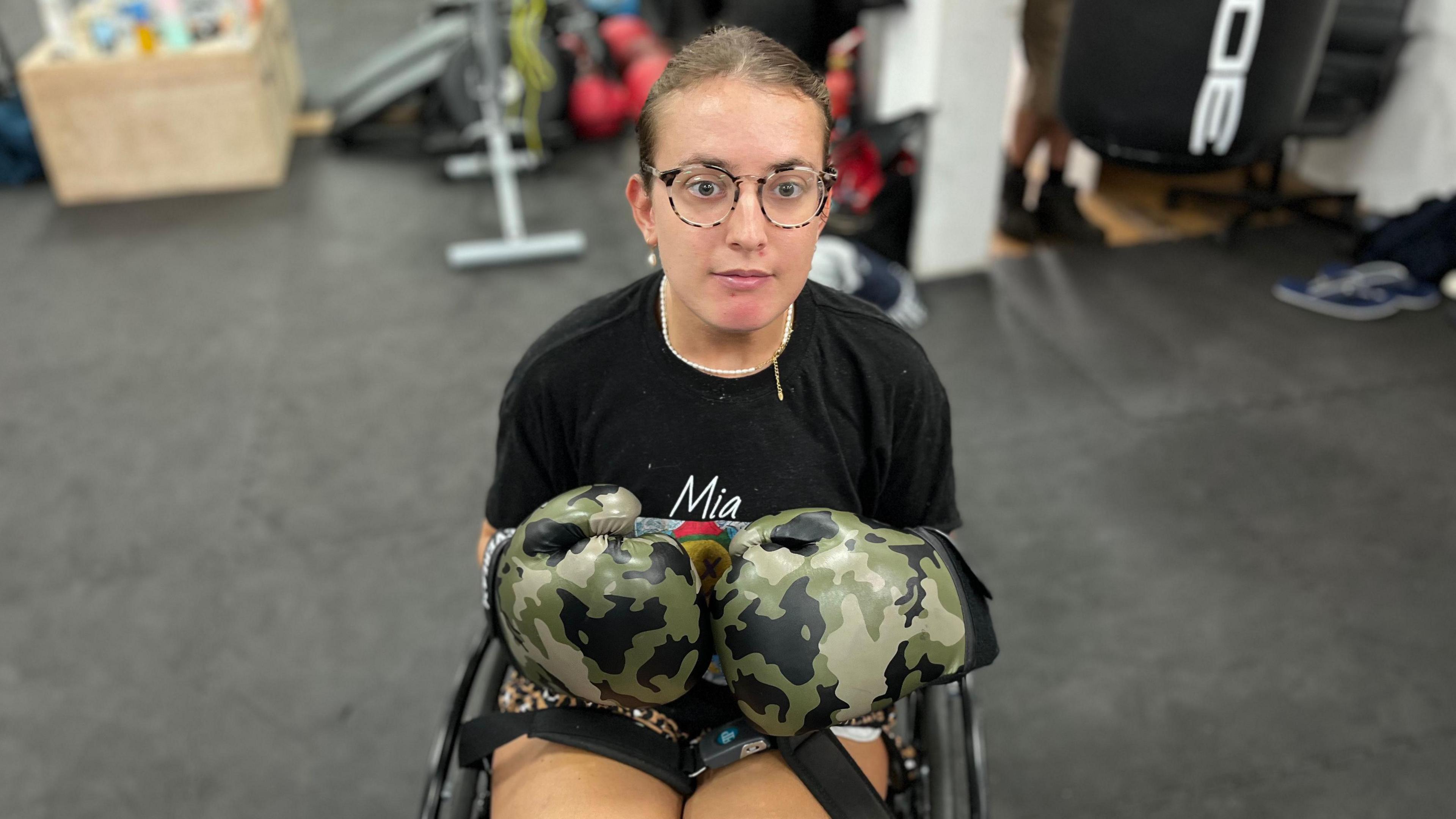
The club has helped participants like Mia to learn new skills
The club has helped participants to learn new skills but it has also helped to build relationships.
Danielle Garland said she met her boyfriend Clayton while training at the gym.
"At the club I like seeing my friends and seeing how they are getting on with their fitness,” Ms Garland said.
Get in touch
Do you have a story BBC Hampshire & Isle of Wight should cover?
You can follow BBC Hampshire & Isle of Wight on Facebook, external, X (Twitter), external, or Instagram, external.
Related topics
- Published1 May 2024
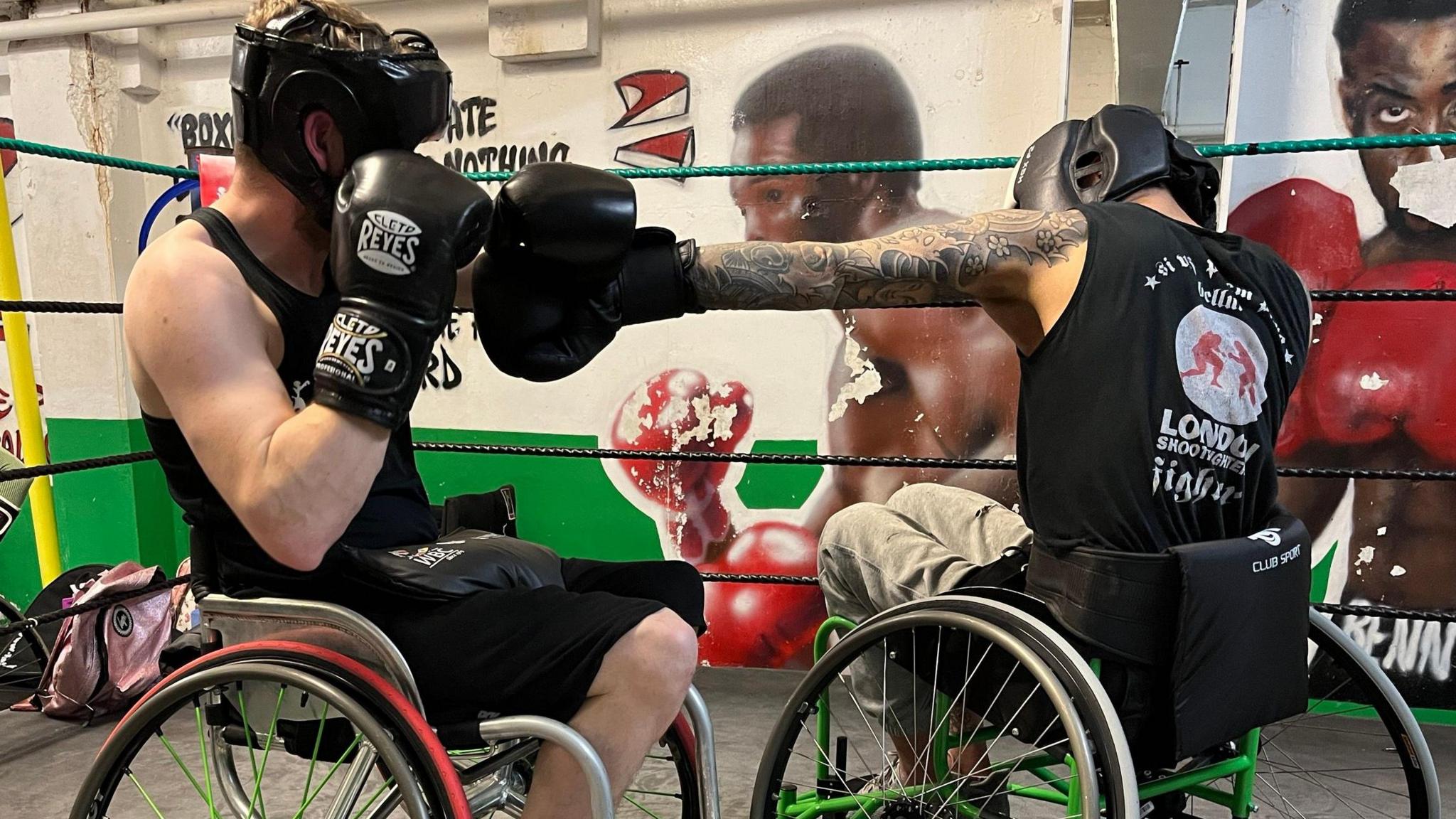
- Published8 September 2024
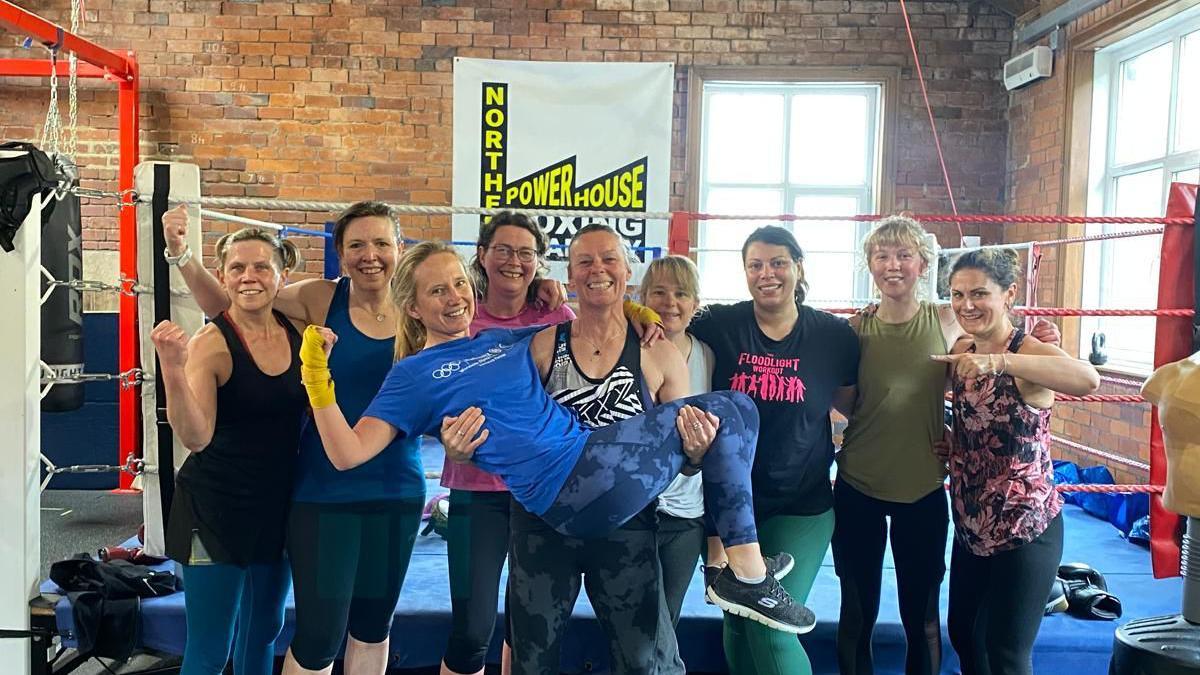
- Published29 August 2024
